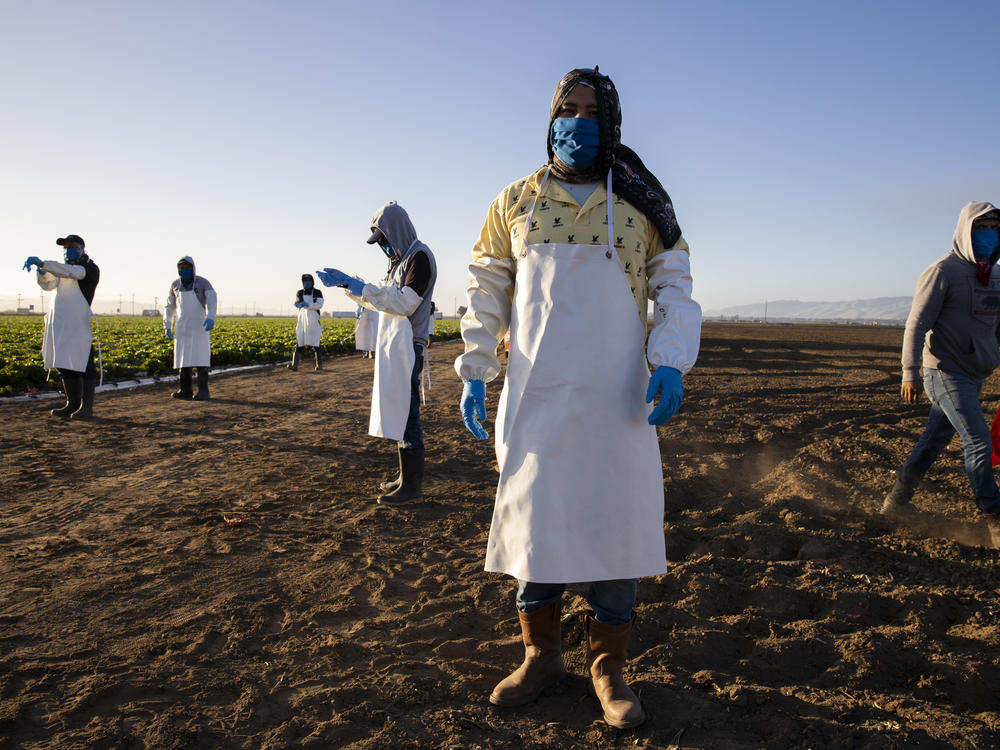Section Branding
Header Content
Wildfires Make Dangerous Air For Farmworkers: 'It's Like You Can't Breathe'
Primary Content
Farmworkers in California are facing two crises at once: the coronavirus and exposure to dangerous air from wildfires.
Massive fires border large swaths of California's agriculture region, the Central Valley. Monitoring stations report unhealthy air across the interior of the state.
"To be out in the fields, it's like you can't breathe," says Hernan Hernandez, executive director of the California Farmworker Foundation.
California requires employers to provide outdoor workers with respiratory protection such as N95 masks if the air quality reaches a certain threshold. In a statewide survey last month, a labor union found farmworkers mostly weren't getting them. But wearing a mask when it's 110 degrees isn't easy either.
About half, or more, of farmworkers in the U.S. are in the country illegally. They don't have access to many government benefits, can't afford to miss work and may be hesitant to complain.
Here are excerpts of Sacha Pfeiffer's interview with Hernandez on All Things Considered about the threats facing farmworkers.
I understand that you're hearing that employers are not always supplying masks.
Yes. There's not enough PPE to sustain the current agriculture workforce in California. So what we're seeing on the ground is that everybody's just trying to get a hold of whatever they can. At a state level, in which PPE distributions have occurred in the past couple of weeks, we're nowhere near meeting the demands to ensure the safety of farmworkers and their families.
What are you hearing from farmworkers about the kinds of dilemmas and choices they're facing, especially in terms of what if they miss work and how do they try to protect their health?
When you look at farmworkers and you ask them, "How can the state help you during these difficult times?" the No. 1 thing they will tell you is rent relief. The Central Valley, the coastal areas, everywhere in California, there's a housing crisis. And you're seeing it through farmworkers living in households that have two to three families because they can't afford the rent.
California did supply some pandemic aid to undocumented immigrants — about $125 million in May. Has that money gotten to farmworkers and helped them during this time?
Yes, it was a very minute force that actually received the California aid, because just in the Central Valley alone we have over 500,000 farmworkers. The aid for the Central Valley was capped at 10,000 undocumented workers, so this didn't encompass just farmworkers, it encompassed any type of undocumented worker that works in retail, that works in restaurants, that works in construction, so a very minute force actually had an opportunity to receive those $500.
Jonaki Mehta and Sarah Handel produced and edited the audio interview.
Copyright 2020 NPR. To see more, visit https://www.npr.org.

